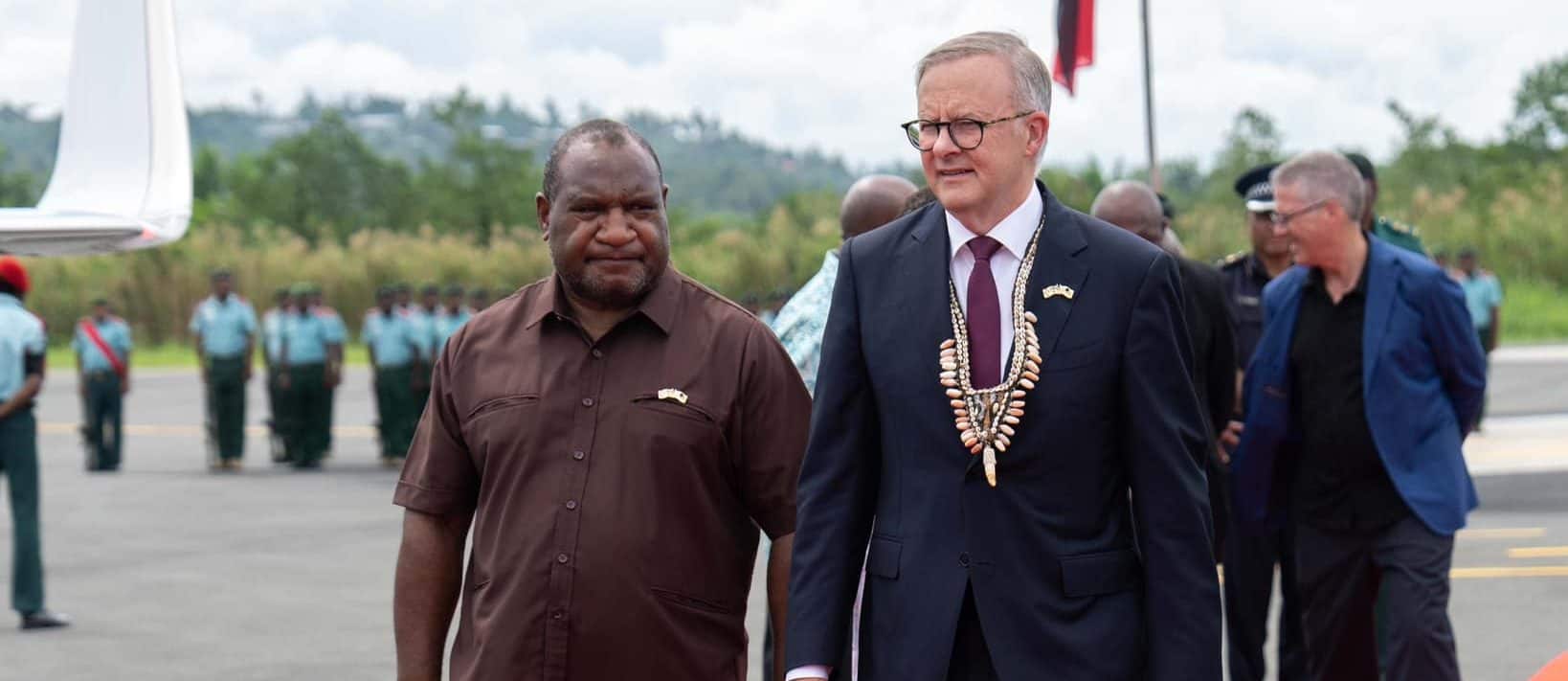The U.S. has urged Papua New Guinea to turn down China’s offer of a security pact, increasing pressure on the prime minister of Australia’s nearest neighbour as he prepares to address parliament in Canberra this week.
The Chinese government last year tried to encompass 10 Pacific Island nations in a single, region-wide security treaty but was rebuffed and now seeks one-on-one deals with individual capitals.
A senior U.S. official, Deputy Secretary of State, Richard Verma, during a visit to Australia urged PNG to turn down the offer from Beijing. “That sort of security guarantee comes with consequences. It comes with costs. And we’ve seen that the Chinese commitment in defence or investment comes with a high cost. That’s what we’d say to PNG,” he told this masthead in an interview.
He stated openly that “it is a competition” for influence in the region between the People’s Republic of China on one hand and the U.S. and its allies including Australia on the other, and that “we have to compete aggressively”.

PNG’s Foreign Minister Justin Tkachenko revealed last week that his government was in early negotiations over a policing deal with Beijing. “We deal with China at this stage only at the economic and trade level,” said Tkachenko. “They are one of our biggest trading partners, but they have offered to assist our policing and security on the internal security side. They have offered it to us, but we have not accepted it at this point in time.”
When this news provoked criticism, Tkachenko sought to reassure Canberra but said the offer from China was still under consideration: “We will not jeopardise or compromise relations with our traditional security partners”.
Australia and the U.S. both signed security deals with PNG in recent months. The PNG opposition raised the suspicion that the government of Prime Minister James Marape might be considering using Chinese weapons and security forces to keep itself in power unconstitutionally.
Verma, in Australia last week after visiting the South Pacific, said: “We would like to see people choose security arrangement or investment opportunities or advanced connectivity with countries that play by the rules, that live up to the international standards. China has shown that it is not doing that. China has shown that it’s not interested in the modern rules-based order.”
He spoke of the “false promise of authoritarian regimes”. For example, he said, countries in investment arrangements with China found that “it can be a debt trap that many countries have gotten themselves into and have tried to get out of. There are other options out there.”
Marape is due in Australia this week and set to make an address to the parliament on Thursday, the first by a foreign leader since Indonesia’s Joko Widodo in 2020. Canberra and Port Moresby are to celebrate 50 years of PNG independence from Australia next year.
China is on a years-long campaign to intensify official ties to all the countries of the Pacific. Last month it succeeded in persuading Nauru to sever its diplomatic ties with Taiwan in favour of recognising the Chinese Communist Party regime on the mainland.
Verma said that the U.S. was actively expanding its presence in the Pacific Island states. He cited new U.S. embassies in Tonga, Kiribati, Solomon Islands, an enlarged mission in Fiji, a step-up in the USAID foreign aid office in Fiji, an annual US$350 million aid and development program in the region, and a private sector project to lay underwater fibre optic cable to connect all Pacific states for the first time. “It is a critically important part of the Pacific,” said Verma. “We have been and remain a Pacific-minded country. Sixty per cent of our navy is based here,” he said.
